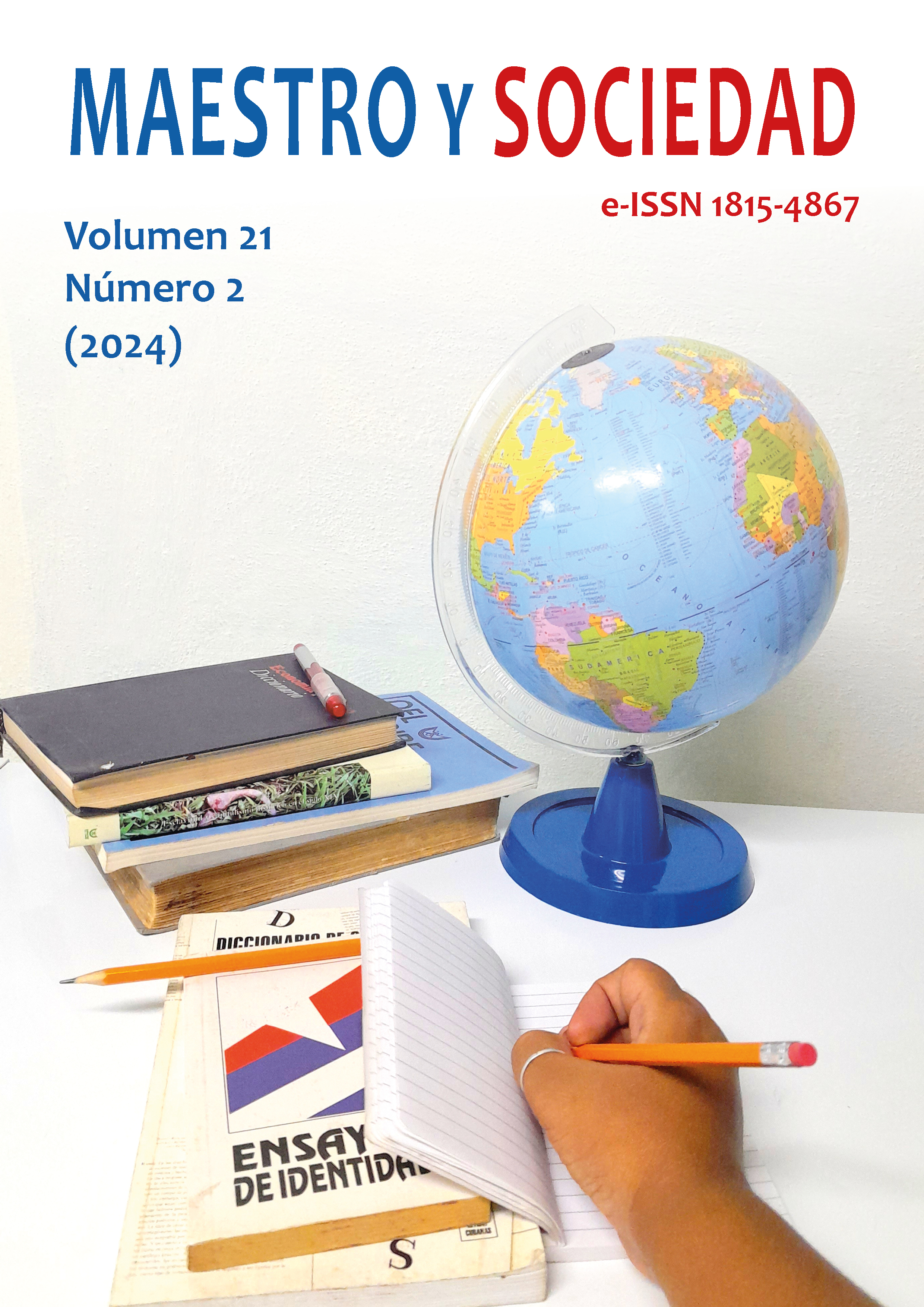Communication references for business administration
Keywords:
referentes comunicativos; administración de empresas; comunicación comercialAbstract
Introduction: Commercial communication for companies consists of transmitting the benefits of the company's services and products in an efficient way that allows potential clients to see themselves reflected and identify what can cover their needs. To do this, it is essential to know what the target customer is demanding, and thus develop a communication that responds to their needs. The main objective of commercial communication is to produce a reaction that brings the end customer closer to the company and thus interfere in their purchasing decisions. Materials and methods: Methods such as analysis and synthesis will be used: to establish the characterization of the object of study and define the theoretical references that support the investigative, hypothetical-deductive process: for the construction of the hypothesis, induction and deduction for the bibliographic analysis, scientific observation: to evaluate the current state of the scientific problem and the characterization of the company under investigation and documentary analysis: to review the information available in the company. The ABC method to classify customers and suppliers. Group work techniques, expert criteria, surveys, as well as computer programs and the use of new technologies for information processing and the preparation of tables and graphs will be used. Results: Today, the possibility that technology has opened up to us through what we call business intelligence, which represents the ability to transform data into information and knowledge, allows us to have sufficient information to make decisions and have greater success when selecting where, when and how to communicate a product or service with the objective of selling. Discussion: The message you want to communicate has to be aligned with the sales arguments and the selected media and thus not disconcert the end customer. The message must be clear, precise and simple, avoiding technicalities for a better understanding, as well as descriptive, showing the strengths of the product or service offered. Furthermore, we have gone from mass communication to personalized communication, adapting the interlocutor and directing them to the commercial purpose you pursue; without forgetting the relevance of the place or time being the most appropriate. Conclusions: To implement commercial communication from business administration and take advantage of it, it is essential to have experts who advise to achieve optimal results and achieve sales.
References
Arboleda, O. y Zabala, H. (2011). Condiciones clave para el éxito y sostenibilidad de los emprendimientos solidarios de Medellín. Semestre Económico, 17(28), 77-94.
Edwards, M. G. (2021). The growth paradox, sustainable development, and business strategy. Business Strategy and the Environment, 30(7), 3079–3094. https://doi.org/10.1002/bse.2790.
Banerjee, S. B., Jermier, J. M., Peredo, A. M., Perey, R. & Reichel, A. (2021). Theoretical perspectives on organizations and organizing in a post-growth era. Organization, 28(3), 337–357. https://doi.org/10.1177/1350508420973629.
Buckman, S. & Tremblay, N. (2021). Local first organizations as community resilience: The importance of small businesses in creating a more resilient community. Local Development & Society, 2(1), 97–113. https://doi.org/10.1080/2688 3597.2021.1908841.
Loor-Chávez, D. et al. (2018). Estrategias de crecimiento para aumentar el volumen de ventas de las pequeñas empresas. Polo Del Conocimiento, 3(11), 3. https://doi.org/10.23857/pc.v3i11.767.
Ncube, M., Soonawalla, K. & Hausken, K. (2021). The Links between Business Environment, Economic Growth and Social Equity: A Study of African Countries. Journal of African Business, 22(1), 61–84. https://doi.or g/10.1080/15228916.2019.1695184.
Reyes-Menendez, A., Correia, M. B., & Matos, N. (2020). Understanding online consumer behavior and ewom strategies for sustainable business management in the tourism industry. Sustainability (Switzerland), 12(21), 1–14. https://doi.org/10.3390/su12218972.
Simba, A., & Thai, M. T. T. (2019). Advancing Entrepreneurial Leadership as a Practice in MSME Management and Development. Journal of Small Business Management, 57(S2), 397–416. https://doi.org/10.1111/jsbm.12481.
Zilberstein, J. (1999). Una didáctica para una enseñanza y un aprendizaje desarrollador. ICCP.
Published
How to Cite
Issue
Section
License
Copyright (c) 2024 Edison Johny Quevedo Zambrano, María Vanessa Cano Montesdeoca, Paola Gabriela Álava Chichanda, Karen Andrea Álava Chichanda

This work is licensed under a Creative Commons Attribution-NonCommercial-NoDerivatives 4.0 International License.
This journal provides immediate open access to its content, based on the principle that offering the public free access to research helps a greater global exchange of knowledge. Each author is responsible for the content of each of their articles.



























 Universidad de Oriente
Universidad de Oriente 